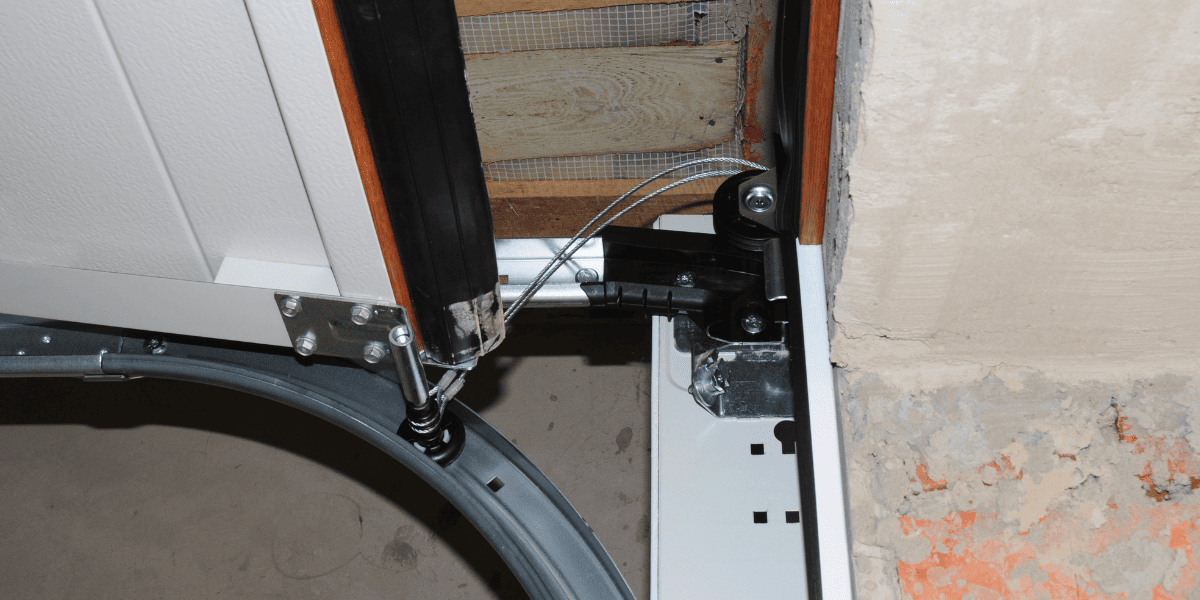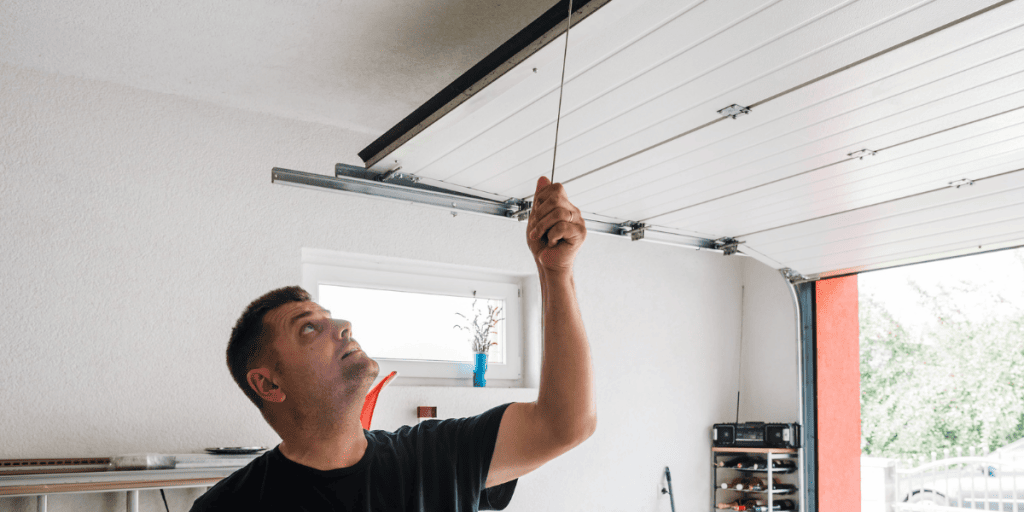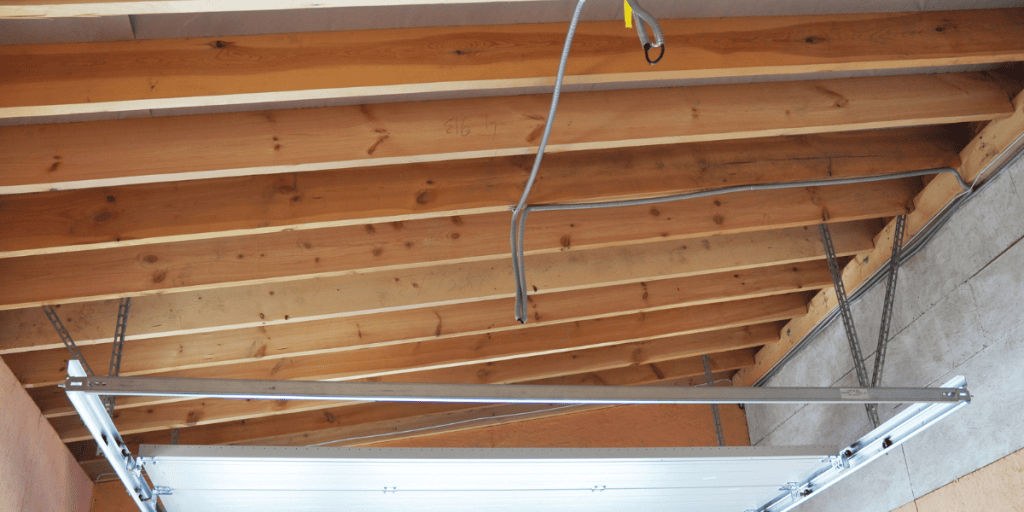Maintaining Garage Door Cables for Longevity and Peace of Mind
How to Detect and Handle Cable Breaks – Tips from Garage Door Repair Currumbin
Garage doors are an essential component of any home, providing convenience, security, and protection for vehicles and belongings. While many homeowners may focus on the garage door’s main panels and opener, it’s crucial not to overlook the significance of garage door cables. These cables play a pivotal role in the proper functioning of the garage door system.
Garage door cables are the sturdy, steel or metal ropes that run along both sides of the door and are connected to the bottom brackets. When you open or close the garage door, the cables work in conjunction with the springs to support the door’s weight and ensure smooth movement. They bear tremendous tension and pressure, making them susceptible to wear and tear over time.
Without functional garage door cables, the entire system could be compromised, leading to potential safety hazards and costly repairs. Therefore, understanding their importance and ensuring their proper maintenance is vital for every homeowner. When a cable snaps and leaves your door stuck shut, you’ll need specific techniques—our guide on how to change garage cable with door down provides the exact process for this challenging repair situation.
Understanding Garage Door Cables
Role of garage door cables in the operation:
Garage door cables play a crucial role in the smooth and safe operation of overhead garage doors. They are an essential component of the lifting system, working in conjunction with the springs to counterbalance the weight of the door. The primary function of garage door cables is to support and guide the door as it opens and closes.
- Counterbalance: Garage doors are typically heavy, especially those made of wood or steel. Without the cables, it would be extremely difficult to manually lift the door. The cables work with the springs to offset the weight of the door, making it possible to open and close with minimal effort.
- Safety: Properly functioning garage door cables are vital for the safety of users and their belongings. When the door is raised, the cables ensure that it remains stable and doesn’t fall unexpectedly. This prevents accidents and injuries that could occur if the door were to come crashing down due to spring tension failure.
Types of garage door cables:
- Torsion spring cables: Torsion spring systems are commonly found in modern garage doors. Torsion springs are mounted horizontally above the door, and the cables are attached to the bottom corners of the door and then wound around the torsion bar. When the door is closed, the tension in the cables and springs stores energy, which is released to assist in lifting the door when opening.
- Extension spring cables: Extension springs are usually employed in older garage door systems. These springs are mounted on both sides of the door and extend horizontally when the door is closed. The cables are attached to the bottom corners of the door and then run through pulleys and extension spring containment hardware. When the door is opened, the extension springs stretch and contract to help lift and lower the door.
Signs of cable wear and potential issues:
Regular inspection and maintenance of garage door cables are essential to ensure their proper functioning and prevent potential problems. Look out for the following signs of cable wear or issues:
- Fraying or broken strands: Check the cables for any visible signs of fraying or broken wires. Frayed cables are a clear indication that they are wearing out and may fail soon. If you notice this, it’s crucial to replace the cables promptly.
- Loose or slack cables: The cables should be taut when the door is closed. If you notice any slack or looseness, it may be a sign of cable stretching or improper tension. This can lead to uneven movement of the door and potential safety hazards.
- Cable off the drum: Sometimes, cables can slip off the drum that winds and unwinds the cable during door operation. If this occurs, do not attempt to fix it yourself, as the door may be under tension and attempting to repair it without proper knowledge and tools can be dangerous. Seek professional help immediately.
- Noisy operation: Excessive creaking, popping, or grinding noises during door movement might indicate cable issues. The cables could be rubbing against the track or other components, or they might be misaligned, affecting the smooth operation of the door.
- Imbalanced door: An unbalanced door that doesn’t open or close evenly may point to problems with the cables. It could be due to unequal tension in the cables or issues with the springs.
If you notice any of these signs or suspect any problems with your garage door cables, it’s essential to contact a qualified garage door technician to inspect and, if necessary, repair or replace the cables. Garage door components are under high tension and can be dangerous to work with without the proper training and equipment. Regular maintenance and timely repairs will help ensure the safe and efficient operation of your garage door.
Why Regular Maintenance is Essential
Regular maintenance is essential for various reasons, and it applies to a wide range of things, including vehicles, appliances, and even household systems like the garage door. Here are some key reasons why regular maintenance is crucial for a garage door system:
Preventing costly repairs and replacements:
By conducting regular maintenance on your garage door system, you can identify and address minor issues before they escalate into major problems. Components such as springs, cables, rollers, and tracks can experience wear and tear over time. If left unattended, these issues can lead to more significant malfunctions, potentially resulting in expensive repairs or even the need for a complete replacement of the door.
For instance, a small misalignment in the tracks can cause the door to function poorly and put additional stress on the motor and other components. Ignoring this issue might eventually lead to a damaged motor or a door that gets stuck, leaving you with a much higher repair bill than if the misalignment had been corrected during routine maintenance.
Ensuring safety for family and property:
A malfunctioning garage door can pose significant safety hazards for you, your family, and your property. Garage doors are heavy and operate under tension, so any failure in the system can lead to accidents or injuries. Regular maintenance allows technicians to inspect and test safety features like auto-reverse mechanisms, which are designed to prevent the door from closing on objects or people. If these safety features are not working correctly, it could be hazardous for anyone near the door when it’s in operation.
Moreover, a faulty garage door might not close properly, leaving your property vulnerable to theft and unauthorized access. By maintaining the door, you can ensure that it operates smoothly and securely, providing you with peace of mind.
Extending the lifespan of the garage door system:
Just like any mechanical system, a garage door has a finite lifespan. However, with regular maintenance, you can significantly extend its longevity. Lubricating moving parts, adjusting tension in springs, and keeping tracks clean are some of the tasks that can help reduce wear and tear on the components. By addressing minor issues promptly, you prevent them from causing more significant damage to the entire system, ultimately prolonging the life of your garage door.
Additionally, a well-maintained garage door system can also enhance the overall curb appeal and value of your property. Since the garage door is a prominent feature of your home’s facade, keeping it in top condition ensures that it looks good and complements the overall aesthetics of your house.
DIY Inspection: Checking Garage Door Cables
Identifying Signs of Cable Wear and Fraying:
During the visual inspection, pay close attention to the condition of the garage door cables. Look for signs of wear and fraying, which can be indicative of potential problems:
- Frayed Strands: Examine the individual strands that make up the cable. If you notice any fraying or unraveling of the strands, it’s a clear sign of cable deterioration.
- Rust: Check for rust or corrosion on the cables, as it can weaken the cable structure and lead to failure.
- Broken Strands: Look for any broken strands within the cable, as this compromises its strength and safety.
- Cable Loops: Observe the cable loops at the bottom of the door. If they appear uneven or damaged, it may indicate cable issues.
Lubrication: Reducing Friction and Wear
Importance of Lubricating Garage Door Cables:
Garage door cables play a crucial role in the smooth and safe operation of a garage door. These cables are responsible for lifting and lowering the heavy door, which can weigh several hundred pounds. Proper lubrication is essential to ensure the efficient functioning of the cables and the overall garage door system. Here are some key reasons why lubricating garage door cables is important:
- Reducing Friction: Lubrication helps to reduce friction between the cables and other moving parts of the garage door system. Friction can cause excessive wear and tear on the cables, leading to premature failure.
- Preventing Wear: By reducing friction, lubrication also helps prevent excessive wear on the cables. Regular use of the garage door can cause the cables to wear out over time, but proper lubrication can extend their lifespan significantly.
- Enhancing Performance: Well-lubricated garage door cables contribute to smoother and quieter operation. The door will open and close more efficiently, and the motor or lifting mechanism won’t have to work as hard, potentially increasing the overall lifespan of the garage door opener.
- Safety: Ensuring the garage door cables are in good condition is crucial for safety. Lubrication helps prevent cable snaps and reduces the risk of sudden cable failures that could lead to accidents or property damage.
Types of Lubricants Suitable for Garage Door Cables:
When it comes to lubricating garage door cables, not all lubricants are suitable. It’s essential to use the right type of lubricant to avoid potential issues. Here are some lubricant options that are suitable for garage door cables:
- Silicone-based Lubricant: Silicone-based lubricants are one of the most commonly used lubricants for garage door cables. They offer excellent lubrication, do not attract dust and debris, and provide long-lasting protection against friction and wear.
- Teflon-based Lubricant: Teflon-based lubricants, also known as PTFE lubricants, are another good choice. They create a dry, slick surface that reduces friction and repels dirt and grime.
- Lithium Grease: Lithium-based greases are versatile and can be used for various garage door components, including cables. However, make sure to choose a grease specifically formulated for garage door use.
Avoid using the following types of lubricants as they may cause more harm than good:
- WD-40: While WD-40 can be useful for many household applications, it is not the best option for garage door cables. WD-40 is a solvent and not a long-lasting lubricant, and it tends to attract dust and dirt, leading to more friction over time.
- Heavy Oil: Thick and heavy oils can accumulate on the cables, attracting debris and causing them to bind or become sticky.
Remember to perform garage door cable lubrication regularly, ideally every six months, to maintain the door’s optimal performance and ensure the safety of your garage door system.
When to Seek Professional Help
Knowing the limitations of DIY maintenance:
While do-it-yourself (DIY) projects can be rewarding and cost-effective in many cases, there are certain situations where it is crucial to recognize the limitations of DIY maintenance and seek professional help. Some key factors to consider include:
- Safety concerns: Some maintenance tasks involve handling hazardous materials, working with high-voltage electrical systems, or dealing with heavy machinery. Attempting these tasks without the proper knowledge and equipment can lead to serious injuries or even fatalities.
- Lack of expertise: DIY enthusiasts may possess basic knowledge and skills, but certain tasks require specialized training and experience. Complex systems, like plumbing, HVAC (heating, ventilation, and air conditioning), or electrical work, demand professional expertise to ensure they are correctly repaired or installed.
- Potential damage: Attempting repairs without the necessary skills might exacerbate the issue or cause additional damage, resulting in higher repair costs when professionals are eventually called in.
- Warranty concerns: Many appliances and systems come with warranties that can be voided if unauthorized individuals attempt repairs. It’s essential to check the warranty terms and seek professional assistance to protect your coverage.
- Time constraints: DIY projects can be time-consuming, especially when you need to research and learn how to tackle a particular issue. For urgent problems or when you lack the time to dedicate to a DIY approach, hiring a professional can save you time and stress.
Complex cable issues that require expert assistance:
- Network and data cabling: Setting up or troubleshooting network cabling, especially in large commercial environments, demands a thorough understanding of network protocols, cable types, and routing. Professionals can ensure proper cable management and optimize data transfer rates.
- Electrical wiring: When dealing with complex electrical systems or rewiring, a licensed electrician is essential to prevent electrical fires, ensure compliance with building codes, and maintain the safety of your property.
- Home theater and audio systems: Configuring intricate audio and video setups can be challenging, involving various cables, connectors, and settings. A professional can calibrate the system for optimal performance and troubleshoot any issues.
- Telecommunication cables: For businesses with extensive communication infrastructure or homeowners requiring complex phone line setups, professionals can install, maintain, and repair these systems efficiently.
Importance of hiring licensed and experienced technicians:
- Expertise and knowledge: Licensed technicians have undergone rigorous training, passed exams, and obtained certifications. Their expertise ensures that they understand the intricacies of their field and can handle various issues competently.
- Safety and compliance: Licensed technicians are well-versed in safety protocols and adhere to industry regulations and building codes. This ensures that the work is performed safely and up to the required standards.
- Reliable problem-solving: Experienced technicians have encountered a wide array of issues and know how to diagnose and resolve problems effectively. They can identify underlying causes, preventing recurring issues that might arise from incomplete or temporary fixes.
- Access to proper tools and equipment: Professionals typically have access to specialized tools and equipment required for the job, making the process more efficient and accurate.
- Insurance coverage: Reputable technicians carry liability insurance, which protects you and your property in case of any unexpected accidents or damages during the repair or installation process.
Safety Tips for Working with Garage Door Cables
Ensuring Personal Safety during Maintenance:
- Disconnect Power: Before starting any work on the garage door cables, it’s crucial to disconnect the power to the garage door opener. This ensures that the door won’t accidentally activate while you’re working on it, preventing potential accidents and injuries.
- Wear Protective Gear: Always wear appropriate safety gear, such as safety goggles, work gloves, and sturdy footwear. These will protect your eyes, hands, and feet from any flying debris or accidental cable snaps.
- Secure the Door: Make sure the garage door is fully closed and secured in place before attempting any maintenance on the cables. Use clamps or locking pliers to keep the door from moving unexpectedly.
- Beware of Tension: Garage door cables are under high tension, and if mishandled, they can snap or cause severe injury. Avoid standing directly under the cables and keep others away from the work area.
- Work with a Partner: Some garage door maintenance tasks may require an extra set of hands. Having a partner can not only make the job easier but also enhance safety by providing assistance and spotting potential hazards.
Safety Protocols for Cable Adjustment and Replacement:
- Educate Yourself: Understand the garage door’s cable system and how it functions. Familiarize yourself with the specific model of your garage door and follow the manufacturer’s instructions for adjustment and replacement.
- Release Tension: Before attempting any cable adjustment or replacement, release the tension from the garage door springs following the manufacturer’s instructions. This step is crucial for preventing unexpected movements that could cause injuries.
- Proper Cable Inspection: Regularly inspect the garage door cables for signs of wear, fraying, or damage. If you notice any issues, do not attempt to adjust or repair the cables yourself. Instead, call a professional technician to handle the situation safely.
- Don’t Over-Tighten: When adjusting the cables, avoid over-tightening them, as this can lead to excessive strain on the system and cause premature wear. Follow the recommended tension settings specified by the manufacturer.
- Replacement by Professionals: If a cable needs replacement, it’s best to leave it to a trained and experienced professional. Garage door cables replacement can be dangerous and requires special expertise to do it safely.
- Document the Process: If you decide to adjust or replace the cables yourself, take photos or make notes throughout the process. This can be helpful if you need to refer back to the steps or if you require assistance from a professional later on.
Remember, while some basic maintenance tasks can be done by homeowners, complex repairs and replacements are best left to qualified technicians. Always prioritize safety and, when in doubt, seek professional help for working with garage door cables.
Frequently Asked Questions
Why is it important to maintain garage door cables?
Garage door cables play a crucial role in the smooth operation and safety of your garage door. They bear the weight of the door and ensure it opens and closes properly. Regular maintenance helps prevent cable wear and tear, which can lead to potential accidents and costly repairs.
How often should I inspect my garage door cables?
We recommend inspecting your garage door cables at least once every six months. Regular inspections allow you to catch any signs of wear, fraying, or damage early on, preventing bigger issues from developing.
Can I inspect and maintain the cables myself?
While basic visual inspections are possible, we strongly recommend hiring a professional technician to perform detailed maintenance. Garage door systems are complex and can be dangerous to work with if you’re not experienced.
What should I do if I notice issues with my garage door cables?
If you notice any signs of damage or wear on the cables, it’s essential to stop using the door immediately and call a professional garage door technician. Continuing to operate a faulty door can lead to more severe problems and pose safety risks.
Conclusion
The maintenance of garage door cables is of utmost importance for several reasons. First and foremost, garage door cables play a critical role in the proper functioning and safe operation of the entire garage door system. These cables are responsible for supporting the weight of the garage door as it opens and closes, helping to distribute the load evenly and preventing undue stress on other components.
Regular maintenance of garage door cables ensures that they remain in good condition and free from wear and tear. Over time, cables can become frayed, corroded, or damaged due to constant use and exposure to the elements. If left unchecked, worn-out cables can lead to sudden failures, causing the garage door to malfunction, become unbalanced, or even collapse, posing a significant safety risk to anyone nearby.
By investing time and effort into maintaining garage door cables, homeowners can save themselves from potential accidents and expensive repairs. It is much more cost-effective to regularly inspect and replace cables as needed than to deal with the consequences of a malfunctioning garage door system.



